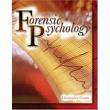History:







Forensic psychology came in light in the twirl of the twentieth century. In 1901, William stern studied on recollection of memory course.
He made his students to analyze a picture for few seconds and then asked questions to them relating to it. He then concluded from his research
that memories which are recalled are in general not precise. Lead-in query are frequently use in police force cross-examination and in inquiring spectators.
The first forensic psychologist is often said to be "Hugo Munster berg". He wrote a book which was published in 1908 which was titled as
"On the Witness Stand". There were some other scientist who has created some test which is helpful for the legal proceeding is Sigmund
Freud and Alfred Binet. There studies suggested that the time taken by an individual to answer a question may possibly be an aspect in determining
guiltiness or incorruptibility.
About forensic psychology:

Forensic psychology is the interface between psychology and the law, so all psychosomatic services offered for the official
community is forensic psychological services. The services provided are both medical and forensic in nature. It is also known as the
application of science and its answers to the queries relating to the rules and regulation of the legal system. The term "forensic" came from "forensic" which means
the forum it is a Latin word. Presently it refers for the purpose of technical and scientific principles to carry out a challenging process which is possible
with a well-educated and highly professional scientist.
Key terms:

Some key terms in forensic psychology are Insanity, Expert Witness, Competency, Jury Consulting and Criminal Profiling.
Some motivating Subfields contained by Forensic Psychology are social psychology, developmental psychology, cognitive psychology,
criminal investigative psychology and clinical-forensic psychology.
Pros and cons in the field of forensic psychology:

Pros: Helping Others, Opportunities, Varying surroundings, acknowledgment and Personal Fulfillment,
long-lasting Education,threat of Injury, no independent work it's always teamwork, and Burnout Risk. Cons: long-lasting Education, threat of Injury, no independent work it's always teamwork, and Burnout Risk.
Qualities needed in Forensic Psychologist:
long-lasting Education,threat of Injury, no independent work it's always teamwork, and Burnout Risk. Cons: long-lasting Education, threat of Injury, no independent work it's always teamwork, and Burnout Risk.

Desirable ability, aptitude, and acquaintance are the key qualities for forensic psychology. Those with an aspiration to work must be patient, flexible, at ease working with others, and take pleasure in doing research. One also have to be a good quality speaker for the reason that a lot of people who do work in this field work as specialist spectators at a few point through their career. An expertise in irregular, motivational, scientific, and social psychology is also main features to be victorious in this field.
Additionally, working in this field requires continuing education throughout one's career, even after 5-7 years of graduate school. One cannot be a certified psychologist with out a doctoral degree.
Institutions for Master degree courses:

A few Terminal Master's Degree courses for practicing a profession in Forensic Psychology are Forensic Psychology at John Jay
College of Criminal Justice, Forensic Psychology at Castleton State College, and Forensic Psychology at the University of Melbourne.




